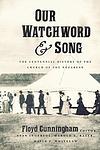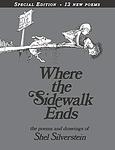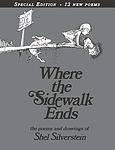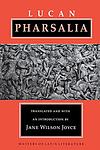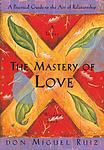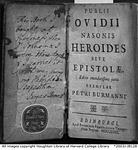The Greatest Western "Ancient Literature, Poetry" Books of All Time
Click to learn how this list is calculated.
This list represents a comprehensive and trusted collection of the greatest books in Western literature. Developed through a specialized algorithm, it brings together 305 'best of' book lists to form a definitive guide to the most acclaimed literary works from the Western tradition. This includes influential writings from Europe and North America that have shaped arts, culture, and philosophy across centuries. For those interested in how these books are chosen, additional details about the selection process can be found on the rankings page.
Genres
Ancient Literature refers to the body of written works produced during the earliest periods of human history, typically up until the fall of the Roman Empire in the 5th century AD. This category encompasses a diverse array of texts, including religious scriptures, epic poetry, philosophical treatises, historical accounts, and dramatic plays, originating from various civilizations such as the Sumerians, Egyptians, Greeks, Romans, Chinese, and Indians, among others. Notable works within this genre include the "Epic of Gilgamesh," Homer's "Iliad" and "Odyssey," the plays of Sophocles and Euripides, the philosophical writings of Plato and Aristotle, the "Mahabharata" and "Ramayana" from India, and the foundational texts of Confucianism and Taoism in China. Ancient literature provides invaluable insights into the thoughts, beliefs, and cultural practices of early societies, and continues to influence modern storytelling, philosophy, and ethics.
Poetry is a genre of literature that uses language to evoke emotion, paint vivid imagery, and convey complex ideas through the use of rhythm, meter, and sound. It is characterized by its use of figurative language, such as metaphors and similes, and its ability to capture the essence of a moment or experience in a concise and powerful way. Poetry can take many forms, including sonnets, haikus, free verse, and spoken word, and can cover a wide range of topics, from love and nature to politics and social issues. As a category for books, poetry offers readers a unique and intimate glimpse into the human experience, inviting them to explore the beauty and complexity of language and the world around them.
Date Range
Reading Statistics
Click the button below to see how many of these books you've read!
Download
If you're interested in downloading this list as a CSV file for use in a spreadsheet application, you can easily do so by clicking the button below. Please note that to ensure a manageable file size and faster download, the CSV will include details for only the first 500 books.
Download-
1. The Odyssey by Homer
This epic poem follows the Greek hero Odysseus on his journey home after the fall of Troy. It takes Odysseus ten years to reach Ithaca after the ten-year Trojan War. Along the way, he encounters many obstacles including mythical creatures, divine beings, and natural disasters. Meanwhile, back in Ithaca, his wife Penelope and son Telemachus fend off suitors vying for Penelope's hand in marriage, believing Odysseus to be dead. The story concludes with Odysseus's return, his slaughter of the suitors, and his reunion with his family.
The 29th Greatest Book of All Time -
2. The Iliad by Homer
This epic poem focuses on the final weeks of the Trojan War, a conflict between the city of Troy and the Greek city-states. The story explores themes of war, honor, wrath, and divine intervention, with a particular focus on the Greek hero Achilles, whose anger and refusal to fight have devastating consequences. The narrative also delves into the lives of the gods, their relationships with humans, and their influence on the course of events.
The 37th Greatest Book of All Time -
3. The Aeneid by Virgil
This epic poem tells the story of Aeneas, a Trojan who travels to Italy, where he becomes the ancestor of the Romans. It includes a series of prophecies about Rome's future and the deeds of heroic individuals, and is divided into two sections, the first illustrating the hero's journey and the second detailing the wars and battles that ensue as Aeneas attempts to establish a new home in Italy. The narrative is deeply imbued with themes of duty, fate, and divine intervention.
The 75th Greatest Book of All Time -
4. Oresteia by Aeschylus
"Oresteia" is a trilogy of Greek tragedies that tells the story of the House of Atreus. It begins with King Agamemnon's return from the Trojan War and his subsequent murder by his wife, Clytemnestra, and her lover, Aegisthus. The second play focuses on the revenge of their son, Orestes, who kills his mother and her lover to avenge his father's death. The final play deals with the trial of Orestes by the gods for the crime of matricide, resulting in his acquittal and the end of the curse on the House of Atreus. The trilogy explores themes of justice, vengeance, and the intervention of the gods in human affairs.
The 252nd Greatest Book of All Time -
5. Metamorphoses by Ovid
"Metamorphoses" is a classical epic poem that narrates the history of the world from its creation to the deification of Julius Caesar within a loose mythico-historical framework. The narrative is filled with stories of transformation, focusing on myths and legends of the Greek and Roman world. The tales, which include the stories of Daedalus and Icarus, King Midas, and Pyramus and Thisbe, among others, are all linked by the common theme of transformation, often as a punishment or reward from the gods.
The 331st Greatest Book of All Time -
6. De Rerum Natura by Lucretius
"De Rerum Natura" is a long didactic poem written in the first century BC, which explores Epicurean philosophy and the nature of the universe. The text delves into topics such as the nature of the gods, the atomic structure of the universe, human sensation and thought, and the fear of death. The author argues that understanding the physical world can free humans from superstition and fear, leading to peace of mind and true happiness.
The 493rd Greatest Book of All Time -
7. The Suppliants by Aeschylus
"The Suppliants" is a classic Greek drama that revolves around a group of fifty women who flee from Egypt to avoid marrying their cousins, seeking asylum in the city of Argos. The King of Argos is torn between offering them protection or facing the wrath of the Egyptians. The play explores themes of democracy, law, and the struggle between the sexes. The drama ends on a cliffhanger, with the Egyptian suitors arriving to reclaim the women and threatening war.
The 887th Greatest Book of All Time -
8. The Odes by Horace
"The Odes" is a collection of lyric poems by an ancient Roman poet. The poems cover a wide range of themes, including love, friendship, wine, nature, morality, and the human condition. The author's style is noted for its elegance, wit, and mastery of meter. The poems also reflect the social and political context of Rome during the author's lifetime, providing insight into the culture and values of the period.
The 1064th Greatest Book of All Time -
9. The Poems of Sappho by Sappho
This book is a collection of lyric poetry by an ancient Greek female poet, known for her passionate verses on love and relationships. The poems, often composed in the first person, offer a unique insight into the life and emotions of women in antiquity, touching on themes such as desire, jealousy, and personal introspection. Despite many of her works being lost over time, the surviving fragments continue to be celebrated for their vivid imagery and emotional depth.
The 1348th Greatest Book of All Time -
10. The Theogony by Hesiod
"The Theogony" is an ancient Greek epic poem that explores the genealogy of the gods. The narrative begins with the primordial deities Chaos, Gaia, and Eros, then progresses through the generations of Titans, Olympian gods, and mortal heroes. It provides an account of the struggles and power dynamics among these divine beings, culminating in the reign of Zeus as the king of the gods. The poem is a significant source of Greek mythology and offers insights into the ancient Greeks' worldview and their understanding of the universe's origins.
The 1406th Greatest Book of All Time -
11. Works and Days by Hesiod
"Works and Days" is an ancient Greek epic poem that provides advice on life and farming. The author uses the myth of Prometheus and Pandora to explain why life is hard for humans, attributing it to Pandora's release of evils into the world. The work serves as a farmer's almanac, giving detailed advice on the best times to plant and harvest crops, and also provides moral guidance, emphasizing the importance of hard work, justice, and piety.
The 1471st Greatest Book of All Time -
12. Song of Songs by Christian Church
"Song of Songs" is a poetic book from the Old Testament of the Bible that explores the theme of love and the beauty of human relationships. It is a dialogue between two lovers, a man and a woman, expressing their deep affection and desire for each other. The book is often interpreted allegorically, symbolizing the love between God and his people, or Christ and the Church.
The 2812th Greatest Book of All Time -
13. Poetry by Quintus Lutatius Catulus
This book is a collection of ancient Roman poetry by a renowned statesman and poet. The poems reflect the author's experiences, thoughts, and feelings about life, love, politics, and society during the Roman Republic era. The author's eloquent and vivid writing style, combined with his astute observations and insights, make this book a valuable resource for understanding Roman culture and history.
The 2849th Greatest Book of All Time -
14. Attis And Other Poems by Catullus
"Attis and Other Poems" is a collection of lyrical works that delve into themes of love, desire, and personal anguish. The poems are characterized by their emotional intensity and vivid imagery, often reflecting the poet's own tumultuous love affairs and inner turmoil. The titular poem, "Attis," stands out with its mythological narrative and exploration of themes such as identity and transformation. Throughout the collection, the poet's mastery of language and form is evident, as he skillfully weaves together personal experiences with broader reflections on human nature and the complexities of the human heart.
The 2903rd Greatest Book of All Time -
15. Poems by Archilochos
The book is a collection of lyrical poetry from an ancient Greek poet renowned for his versatile and innovative use of poetic meters. The poems reflect the poet's personal experiences, emotions, and observations, often with a sharp wit and a frank, sometimes acerbic, tone. His work covers a range of themes, from war and politics to love and loss, offering a glimpse into the life and times of the early Greek lyrical tradition. The poet's influence is notable for his pioneering role in the development of the personal voice in poetry, breaking away from the Homeric tradition of epic storytelling to explore individual human experiences.
The 7193rd Greatest Book of All Time -
16. Poems by Alkman
The book is a collection of ancient Greek lyric poetry attributed to a celebrated poet of the Archaic period. It encompasses a range of choral compositions that were originally intended for musical accompaniment, reflecting the cultural and social milieu of Sparta during the 7th century BCE. The verses are characterized by their vivid imagery, rhythmic innovation, and the use of a local dialect, which together convey themes of nature, mythology, and everyday life. Although only fragments of the original works survive, they offer a glimpse into the ceremonial performances and the poetic artistry of the time, showcasing the poet's skill in blending personal expression with communal celebration.
The 7193rd Greatest Book of All Time -
17. Odes by Pindar
The book is a collection of ancient Greek lyric poetry that celebrates the achievements of athletes victorious in the early classical period's most prestigious sporting events, such as the Olympic, Pythian, Nemean, and Isthmian games. The poems are characterized by their formal structure, vivid imagery, and the blending of mythological references with the real-life feats of the athletes. The poet uses these odes not only to praise the victors but also to reflect on human nature, the divine, and the transient glory of athletic triumph, often offering moral and philosophical insights into the pursuit of excellence and the nature of success.
The 7193rd Greatest Book of All Time -
18. Hymns And Epigrams by Callimachus
This ancient Greek anthology is a collection of poems and inscriptions that blend the sacred with the personal, showcasing the author's erudition and wit. The work includes hymns that pay homage to various gods, offering insights into the religious practices and beliefs of the time, while the epigrams, short and often poignant poems, cover a range of subjects from love to death, capturing the fleeting moments of human experience. The author's innovative approach to poetry, his use of precise language, and his influence on later poets are evident throughout this compilation, which stands as a testament to the Hellenistic era's literary and cultural achievements.
The 7193rd Greatest Book of All Time -
19. Pharsalia by Lucan
"Pharsalia," also known as "The Civil War," is an epic poem that delves into the intense and tumultuous period of the Roman Republic's downfall, focusing on the conflict between Julius Caesar and Pompey the Great. The narrative, rich in rhetorical and dramatic elements, presents a grim and philosophical reflection on the nature of power, the moral decay of Rome, and the catastrophic consequences of civil strife. Through its vivid and often gruesome depictions of battles, political intrigue, and the personal ambitions that drive men to treachery and violence, the poem serves as a cautionary tale about the fragility of political systems and the human cost of war.
The 7193rd Greatest Book of All Time -
20. The Art Of Love by Ovid
The book in question is a didactic poem that explores the intricacies of love and seduction from the perspective of ancient Roman society. It offers a series of instructions and advice on how to attract and retain lovers, presented in a playful and often ironic tone. The work is divided into three books, with the first two primarily addressing men and teaching them how to find, win, and keep a woman's love, while the third book is directed at women, advising them on how to secure and captivate a man's affection. Throughout the text, the author interweaves mythological references and personal anecdotes, creating a rich tapestry of amorous strategies that reflect the social and moral attitudes towards love and relationships of his time.
The 7193rd Greatest Book of All Time -
21. Heroides by Ovid
The book is a collection of fifteen epistolary poems presented as though written by various mythological heroines of Greek and Roman lore to their absent lovers. These letters express the women's emotions as they lament their separation, recount their memories, and plead for their lovers' return. The work explores themes of love, betrayal, and the female perspective within the context of classical myths, offering a unique insight into the emotional lives of characters such as Penelope, Dido, and Medea, who are traditionally depicted through the eyes of male heroes and writers.
The 7193rd Greatest Book of All Time -
22. The New Life by Dante Alighieri
"The New Life" is a prose work that combines both poetry and an autobiographical narrative to explore the themes of love and spiritual longing. The text recounts the author's intense love for a woman named Beatrice, whom he first sees at a young age and becomes enamored with, despite their minimal interaction. Her sudden death plunges him into a state of grief and prompts a profound journey of philosophical and theological inquiry. The work is a meditation on the nature of love, its connection to the divine, and the transformative power it holds. Through a series of poems and reflective prose passages, the author examines the impact of this idealized and unattainable love on his life and work, ultimately finding a new understanding of the relationship between earthly passion and eternal life.
The 7193rd Greatest Book of All Time -
23. Paradise Regained by John Milton
This epic poem is a sequel to a much longer work and focuses on the biblical story of Jesus Christ's temptation by Satan in the wilderness. Over the course of four books, the narrative explores the intellectual and spiritual battle between the Son of God and the devil, who attempts to seduce him with various arguments and worldly temptations. However, Jesus remains steadfast in his faith and virtue, ultimately reclaiming the paradise that was lost by Adam and Eve's fall from grace. The poem celebrates the themes of redemption, the triumph of good over evil, and the wisdom and strength gained through suffering and temptation.
The 7193rd Greatest Book of All Time -
24. Mark Antony by Robert Garnier
The book in question is a classic French Renaissance tragedy that delves into the complex and tumultuous life of a renowned Roman general and politician. Set against the backdrop of the Roman Empire's decline, the narrative explores themes of love, power, betrayal, and the tragic consequences of human flaws. The protagonist's story is one of a passionate and ill-fated love affair with a foreign queen, political strife, and the ultimate downfall of a once-great leader. Through poetic language and dramatic scenes, the play examines the intricate interplay between personal desires and the harsh realities of political life, leading to a catastrophic end that reflects on the nature of fate and the inescapable flaws of humanity.
The 7193rd Greatest Book of All Time -
25. Roman Elegies by Johann Wolfgang von Goethe
"Roman Elegies" is a collection of twenty-four poems that celebrate the classical heritage of ancient Rome while reflecting on contemporary European society. The poems are notable for their eroticism and the personal nature of their content, as they delve into the author's own experiences and emotions during his time in Italy. Through a blend of personal reflection and homage to the ancient world, the work explores themes of love, art, and the human experience, blending the sensual with the intellectual. The elegies are a testament to the author's passion for classical culture and his mastery of poetic form, as well as his ability to infuse his verse with both the depth of his scholarly interests and the intensity of his personal feelings.
The 7193rd Greatest Book of All Time
Reading Statistics
Click the button below to see how many of these books you've read!
Download
If you're interested in downloading this list as a CSV file for use in a spreadsheet application, you can easily do so by clicking the button below. Please note that to ensure a manageable file size and faster download, the CSV will include details for only the first 500 books.
Download










